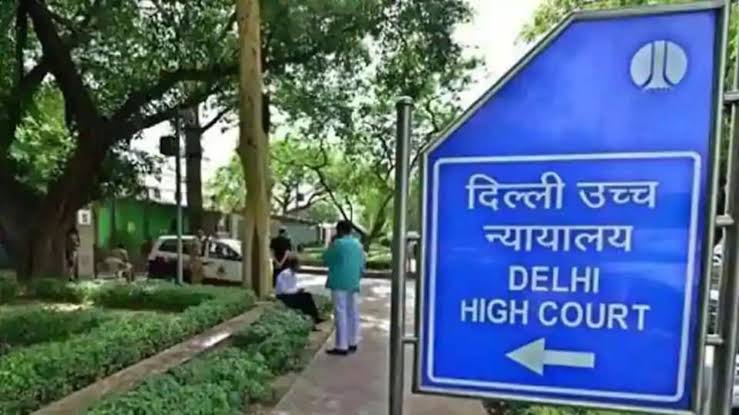Delhi High Court reserves verdict in plea challenging CIC order denying details of Supreme Court collegium's 2018 meeting

On Monday, the Delhi High Court reserved its verdict on a plea challenging the Central Information Commission's order dismissing an RTI appeal seeking the agenda of the Supreme Court collegium meeting on December 12, 2018, when certain decisions were purportedly taken on the elevation of judges to the apex court.
The single judge bench of Justice Yashwant Varma heard the plea and reserved the verdict.
Petitioner Anjali Bhardwaj, in her petition filed through Advocate Prashant Bhushan, challenged CIC's December 16, 2021 order by which her second appeal was dismissed, and urged the high court to direct the authorities to disclose the available information sought in the RTI application filed on February 26, 2019.
Bhardwaj's plea stated that on January 23, 2019, Justice Madan B Lokur, who was a part of the December 12, 2018 collegium meeting and retired on December 30, 2018, in an interview expressed his disappointment that the December 12, 2018 collegium resolution was not uploaded on the Supreme Court website.
In the plea, he is quoted as having said, "Once we take certain decisions, they have to be uploaded. I am disappointed that they were not." In January 2019, a new collegium got constituted after the retirement of Justice Lokur.
Thereafter, Bhardwaj, on February 26, 2019, through an RTI application to the Central Public Information Officer (CPIO) of the Supreme Court sought copy of the agenda, decisions, and resolution of the collegium meeting held on December 12, 2018.
“However, the Supreme Court Central Public Information Officer refused to provide the information on grounds that were held to be not proper by the First Appellate Authority (FAA) and therefore, are not relevant,” the plea stated.
Further, as per the plea, while disposing the appeal against the denial by the CPIO, the FAA held that in view of the subsequent collegium resolution of January 10, 2019, it was clear that though certain decisions were taken in the collegium meeting of December 12, 2018, the required consultations could not be completed therefore no resolution was formally passed, and hence information asked for could not be supplied to the petitioner.
The plea added that in the second appeal, the CIC also relied upon the January 10, 2019 resolution and held that the agenda of the collegium's December 12, 2018 meeting was clear from the subsequent resolution of January 10, 2019, and the copy of the decision and the resolution of December 2018 did not exist on record in terms of Section 2 (f) of the RTI Act and therefore, could not be supplied to the petitioner.
The Supreme Court FAA order, while citing relevant portion of the collegium resolution on January 10, 2019, had said,
"The Collegium comprising the Chief Justice of India and four senior-most judges of the Supreme Court viz. Justices Madan B Lokur, A K Sikri, S A Bobde and N V Ramana met on Wednesday, 12th December 2018 to discuss the Agenda viz., (1) to consider and recommend names for appointment as Judges in the Supreme Court and (2) to consider proposals for transfer of Chief Justices and Judges of High Courts."
"The then Collegium on 12th December 2018 took certain decisions. However, the required consultation could not be undertaken and completed as the winter vacation of the Court intervened. By the time the Court re-opened, the composition of the Collegium underwent a change. After extensive deliberations on 5th / 6th January 2019, the newly constituted Collegium deemed it appropriate to have a fresh look at the matter and also to consider the proposals in the light of the additional material that became available," it had said.
Therefore, the petition sought setting aside of the CIC order on the ground that the petitioner has asked for "a copy of the agenda" of the collegium meeting of December 12, 2018 and not a summary or reference thereof.
"Therefore, CIC has erred in holding that agenda was clear from subsequent resolution dated January 10, 2019 and therefore need not be provided. No exception provided under the Act has been taken or given as to why 'a copy' of the agenda cannot be supplied to the petitioner," it said.
